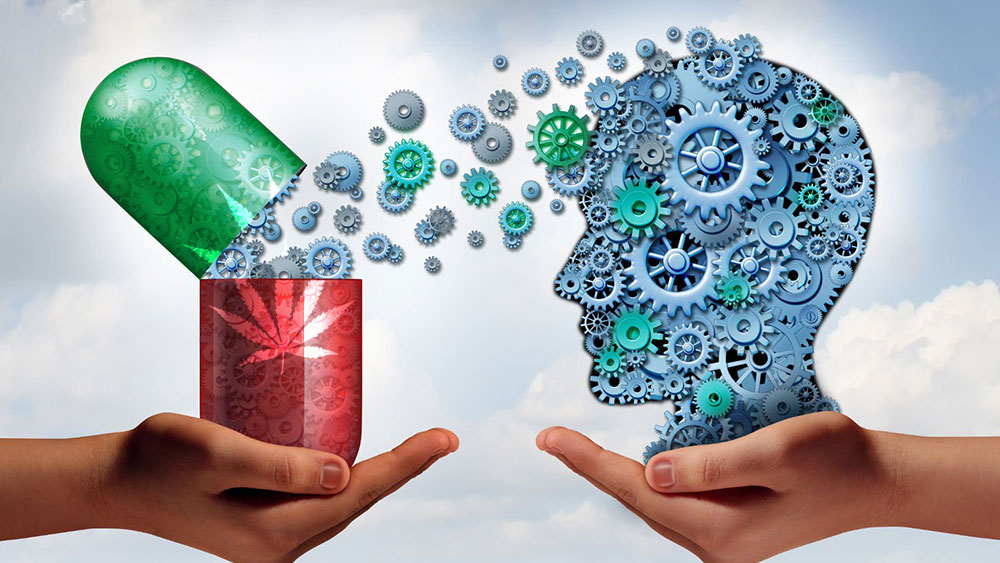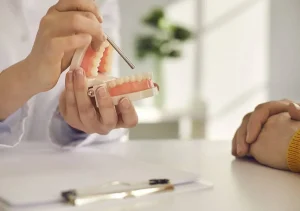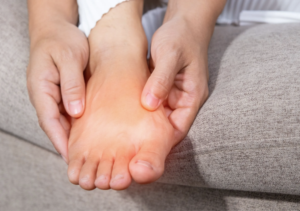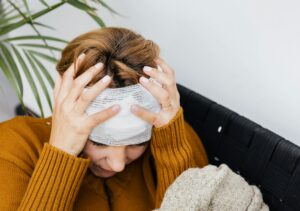If you are here to find out if cannabis can help treat bipolar disorder, I have to disappoint you right away.
There is no scientific consensus on whether marijuana is effective in treating bipolar disorder.
Even the experiences of patients are divided, with some claiming that cannabis helps manage their symptoms and others who stay the hell away from it because it made their symptoms worse the first time they tried it.
I wanted to get to the bottom of this, so I went on a hunt for studies exploring this topic and searched for opinions of people that suffer from this horrible condition.
What is bipolar disorder?
Bipolar disorder is a mental disorder characterized by manic episodes with elevated or irritable mood which alternate with episodes of depression.
Bipolar can be an emotional rollercoaster, with exhausting ups and downs. Because its symptoms are similar to other conditions, and because the disorder is still not very well understood, it’s sometimes difficult to get a diagnosis.
During the extended depressed episode, which usually lasts for at least two weeks, patients experience sadness and hopelessness, overwhelmed with the feeling that they won’t get better.
Other symptoms of bipolar disorder are similar to depression, like a fluctuation in sleeping patterns (both sleeping too much or too little), major changes in appetite (gaining, as well as losing weight), suicidal thoughts, trouble staying focused, lethargy, feelings of worthlessness, guilt and self-loathing.
In severe cases, patients may have delusions and hallucinations which are symptoms of psychosis. Cannabis and psychosis don’t go along together at all, but we’ll get back to that later.
Manic periods are often characterized by elevated, irritated mood, increased energy, impulsive behavior, rapid speech and unsettled thoughts, short attention span and distraction.
The exact cause of this disorder is still unclear, but some genetic as well as environmental factors, such as trauma, stress and childhood abuse, have an impact on its development.
There are three different types of bipolar disorder:
- Bipolar I — having at least one prolonged manic episode, that lasts for at least a week. Patients diagnosed with this type also have depressed episodes, with dramatic mood changes.
- Bipolar II — having at least one depressive episode, without going to the full extremes of mania.
- Cyclothymia — sustained periods of hypomanic and depressive behaviors that don’t necessarily reach the heights of full manic or depressive episodes.
Treating bipolar disorder is a complex matter, and usually includes a combination of medications (mood stabilizers and antidepressants), psychotherapy, and a change in lifestyle (added exercise for example).
Bipolar medications often produce side-effects like dizziness, weight gain, nausea, diarrhea, blurred vision, rash and dry mouth.
Bipolar disorder can lead to substance abuse. Research has shown that 61% of bipolar I and 48% of bipolar II patients self-medicate with alcohol or marijuana. (1)
Is cannabis good or bad for bipolar disorder?
Unfortunately, there is no answer to this. Some patients find it useful for managing their symptoms, while others experience the complete opposite.
There have been a number of studies on the effect of cannabis on bipolar disorder. According to the research, it is unclear if marijuana can cause bipolar disorder, but in some people, marijuana can certainly worsen existing symptoms.
A 2009 study showed marijuana use can be a risk factor for developing psychotic symptoms. (2)
And this is important to remember: THC, the most prevalent cannabinoid in the plant, is a psychoactive compound.
Individuals already suffering from mood disorders should use cannabis with caution, since weed can cause anxiety and paranoia when taken in high amounts. Fortunately, when this happens it’s not a permanent condition — weed-induced anxiety goes away as soon as the effects of marijuana wear off.
However, these side-effects of cannabis can be similar to the symptoms of bipolar disorder. So if a person with bipolar disorder is currently experiencing feelings of increased anxiety, using cannabis is not a good idea.
On the other hand, there are studies which suggest that marijuana can be very effective in treating both depression and anxiety. Some bipolar patients can enjoy cannabis without experiencing undesirable side-effects, and they find it makes them feel more relaxed and calm.
Nonetheless, a 2012 research study found a link between cannabis use and decreased psychotic threshold. This means that marijuana can lower the point at which a person starts having active psychotic symptoms. (3)
There are a few more studies which claim that cannabis can make bipolar disorder symptoms worse (4) and that cannabis lowers the age at which people experience the first symptoms of BD. (5)
Marijuana still remains one of the most abused substances among bipolar patients and 56% of bipolar patients have experienced a drug or alcohol addiction in their lifetime.
What bipolar patients have to say about their experience with cannabis?
While researching for this article, I bumped into this thread and I think it explained exactly what I was talking about. Here are just a few comments, but feel free to check it out yourself.





Find the right strain for you
Whether you want to relieve anxiety, pain or depression, the right strain is out there. Use our online tool to narrow the search.
Get StartedReferences
- Ashton CH, Moore PB, Gallagher P, Young AH; Cannabinoids in bipolar affective disorder: a review and discussion of their therapeutic potential; Journal of Psychopharmacology; May 2005; 19(3): 293-300
- Khan MA, Akella S; Cannabis-Induced Bipolar Disorder with Psychotic Features: A Case Report; Psychiatry (Edgemont); December 2009; 6(12): 44–48
- Bhattacharyya S, Crippa JA, Allen P, Martin-Santos R, Borgwardt S, Fusar-Poli P, Rubia K, Kambeitz J, O’Carroll C, Seal ML, Giampietro V, Brammer M, Zuardi AW, Atakan Z, McGuire PK; Induction of psychosis by Δ9-tetrahydrocannabinol reflects modulation of prefrontal and striatal function during attentional salience processing; Archives of General Psychiatry; January 2012; 69(1):27-36
- Lev-Ran S, Le Foll B, McKenzie K, George TP, Rehm J; Bipolar disorder and co-occurring cannabis use disorders: characteristics, co-morbidities and clinical correlates; Psychiatry Research; October 2013; 209(3):459-65
- Lagerberg TV, Kvitland LR, Aminoff SR, Aas M, Ringen PA, Andreassen OA, Melle I; Indications of a dose-response relationship between cannabis use and age at onset in bipolar disorder; Psychiatry Research; January 2014; 215(1):101-4







Heather Gates April 19, 2019 at 6:02 pm
I can't agree. High THC in a certain setting for bipolar. can be so fun. But take away the THC and you have CBD a medicine used to treat seizures proven to be immediately effective, better than any other drugs, works the same on a bipolar brain. And unlike psychiatric medications that promise 3 weeks improvement, marijuana legitimately does that. Marijuana is good to the stomach and anything good to the stomach is good for the brain. This is just a brainstorm of all the actual facts, no particular order but all true and the very basics one would need to write an article that would slam this one.